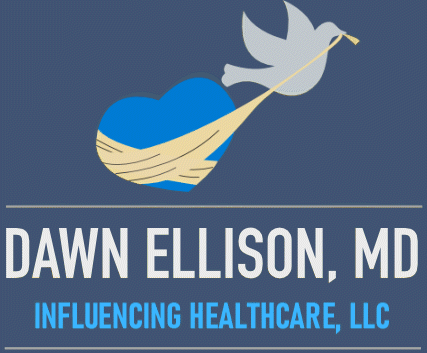Four Ways to Make Meaningful Human Connections With Colleagues
“If we have no peace, it is because we have forgotten we belong to each other.” – Mother Theresa
By Dawn Ellison, MD, CPC
“I cannot do one more thing.”
I hear this from many of my colleagues as well as coaching clients. We were overscheduled, taking care of everyone except ourselves before COVID happened and now have even more piled on our plates. Now we are also juggling distant learning, remote visits, concerns for our own health and a need to make sure the vulnerable in our community stay safe and connected.
When I coach clients they never start with, “I need to learn how to take care of myself.” They describe the stresses at work, then the stresses at home and when I ask how they are doing with self-care, they laugh. “What self-care?” is a common response. We are probably the most resilient ‘tribe’ on the planet.
Like the ship at sea in the storm, perfectly designed to float; we are perfectly trained to care for patients in this pandemic AND, like the ship, there are things we need to do to stay afloat! This pandemic has opened many people’s eyes to the fact that even ‘we’ need others sometimes.
But who understands what we are going through? Who understands what it is like to need to wear PPE and lose the connection created with smiles? Who understands the anxiety of not knowing who could be infected with the virus and pass it on to you? Who understands the concern you have of passing it on to your family?
Who understands how frustrating it is to see unmasked shoppers at the grocery store? Who understands what it is like to see patients sick with coronavirus that you cannot save? Who understands the ambiguity you feel about isolating yourself from the ones you love?
Who understands how lonely it can be on the frontline? Who understands what it is to be the forgotten heroes?
Your colleagues understand.
Vivek Murthy, US surgeon general, in his book, “Together: The Healing Power of Human Connection in a Sometimes Lonely World” makes the argument that human connection is as important as vaccines and ventilators are to pandemic recovery. He has four suggestions:
1. Spend time each day with the people you love - Be intentional about connecting daily with the people you love. Your support of them will feed you. Compassion lights up the pleasure center in our brains.
Call, text, use apps such as FaceTime, Zoom, Facebook, or Marco Polo, or whatever communication method works for you. Work to maintain these important connections.
2. Be fully attentive with people - Meet other people where they are and listen to understand. Active listening helps both you and them connect on a deeper level. Learn to be better together and together better.
3. Embrace solitude - When you are alone, enjoy your own company. Use a mindset of gratitude, compassion, acceptance, meaning and forgiveness to occupy your thoughts rather than let your default mode fill you with concerns and anxieties. Do what brings you joy.
4. Help and be helped - Connect with your colleagues who understand what you are going through. Be vulnerable, compassionate and deepen the relationships with those who you spend so many of your waking hours. Acts of kindness are a great way to connect with those around you.
It is imperative that we connect with each other during these stressful times and advances in technology have made it easier to do so.
Reflect and ask yourself: Who do you know who would benefit from your connecting with them today? Who cares about you that you would like to hear from?
Take action: Call them. Could you start a virtual social hour? Set up a virtual coffee time chat? Book Club? Journal Club?
Commit to connect today and thrive beyond the pandemic.
Here are some other articles you may enjoy reading
When ground level employees don’t feel their input is heard or valued, it can quickly divide an organization. Learn how to bolster authentic engagement and ensure that decisions are being made with people instead of for people.
How We Communicate With Our Peers
Communication is integral to providing excellent patient care. Read about common communication missteps and how to address them.
A Participative Process is Worth the Effort
Through the spirit of collaboration, optimal health and wellness can be achieved by communicating with patients, families, communities, and other members of the healthcare team.





